Migrants in Calais face harsh conditions while waiting for the chance to cross the English Channel. Despite the risks, many see the UK as their last hope for a better future.
By Natasha Mellersh, special correspondent in Calais
Calais, a coastal city in northern France, has become a transit point for thousands of migrants who see it not as a destination but as a place of purgatory – a final waiting ground before attempting the perilous journey across the English Channel. For many, the UK represents a beacon of hope, a place where they believe their aspirations for safety, family reunification, and opportunity can become reality.
In 2024, at least 75 people have died or gone missing attempting the crossing, more than three times the number in 2023. Yet over 33,000 migrants have reached the UK this year, driven despite increasingly harsh conditions in Calais and growing militarization of the border.
Dreams and determination
In Calais, makeshift camps dot the landscape, each home to migrants with unique but interconnected stories. Their journeys often span continents, marked by escapes from violence, persecution, and poverty.
Ramsi*, a 19-year-old from Syria, has been staying in a camp in central Calais, on the banks of the Saint Omer Canal only a few steps from the grand red brick town hall that towers over the city. After completing his baccalaureate in Syria, he fled through Libya and Lampedusa but avoided settling in Italy, citing the lack of opportunities. Ramsi, who has studied English extensively, dreams of continuing his education in the UK. "It’s my last hope,” he says. "I want to build a life and contribute to the world."
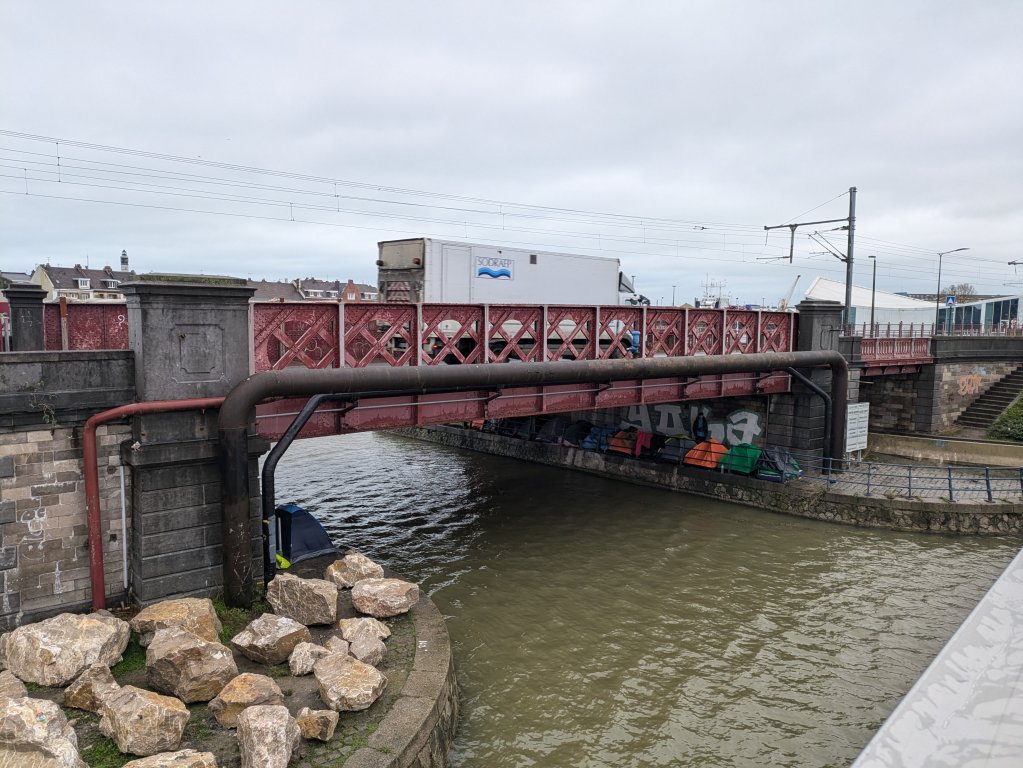
For Issam*, another Syrian from Hama in his mid-thirties, the UK represents the chance for family reunification. Rescued from a small boat years ago, he spent six to eight years in Cyprus but faced hardship and was unable to bring his 11-year-old son from Turkey. Now in Calais, he hopes to start afresh. Having learned English during his time in Cyprus, Issam sees the UK as his best opportunity for a stable life and a chance to bring his family together.
When InfoMigrants asked why Syrians like him are not going to countries like Germany, which is home to almost 1 million Syrians, he explained that he previously tried to go to the Netherlands but without success. In the UK, unlike in other EU states he wouldn’t be subject to the Dublin Regulation, which would send him back to Cyprus – his first country of entry.
Read AlsoHomeless migrants in France: 'They walk at night to avoid freezing to death'
Solidarity and hope
Farther out of the city, near a building site and a small group of trees, we find a group of young Sudanese men. Under heavy rain in a small clearing beside shopping trollies filled with pieces of broken wooden crates, and a number of meandering cats, the men are huddled around a fire cooking their evening meal and warming their wet shoes beneath a large piece of tarpaulin.
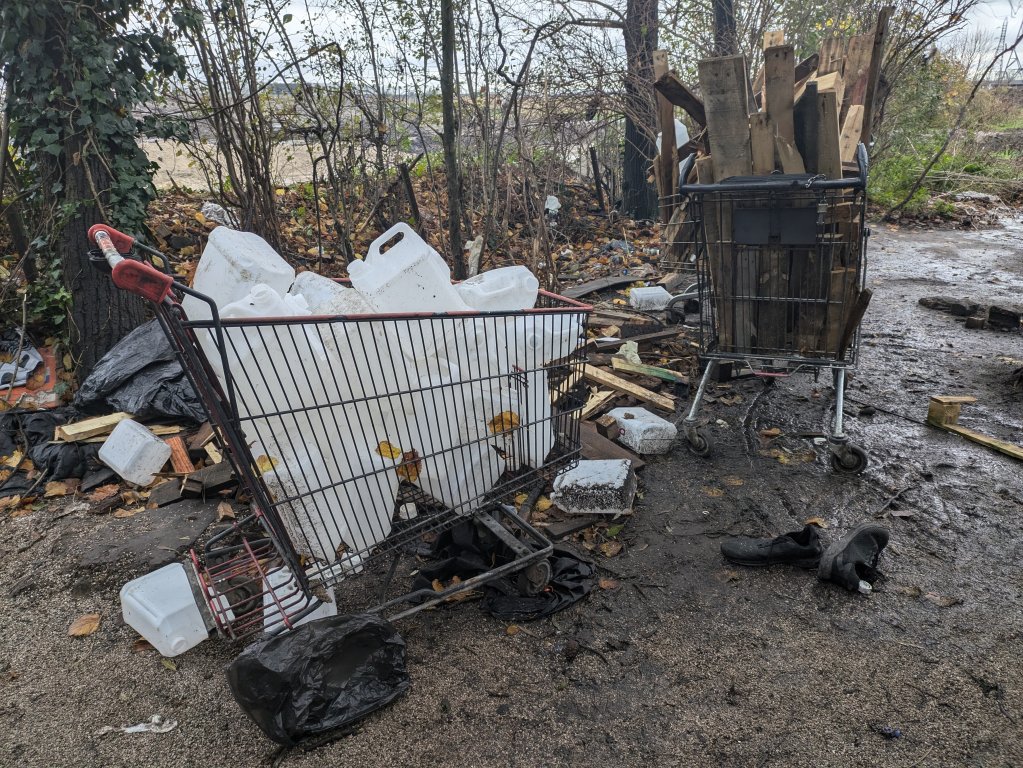
Abdelhamid, a 25-year-old Sudanese refugee, reflects on his escape from Darfur, where Janjaweed militias killed his father. After a grueling journey through Chad, Libya, and Tunisia, he reached Lampedusa by boat and then Calais, where he has been waiting for four months. Abdelhamid dreams of reuniting with his sister in the UK and studying medicine. For him, the UK offers not just opportunity but a chance to heal and rebuild.
There appears to be a degree of solidarity between Sudanese migrants. Most have been in Libya where they say they suffered harsh treatment and abuse. Many of the Sudanese migrants attribute their survival in Libya to the help of other Sudanese migrants there. Abdulhamid explains that his friends were always there for him on his journey. "They helped me to get to Italy he says, I had no money I had nothing," he says.
Many Sudanese migrants are young, between 18-25, and among them are minors, such as 17-year-old Omar, whom we met at a charging station. It was his first day in Calais, having arrived the night before. He says: "The journey is dangerous but at least we are safe here in Calais, at least no one is trying to harm us."
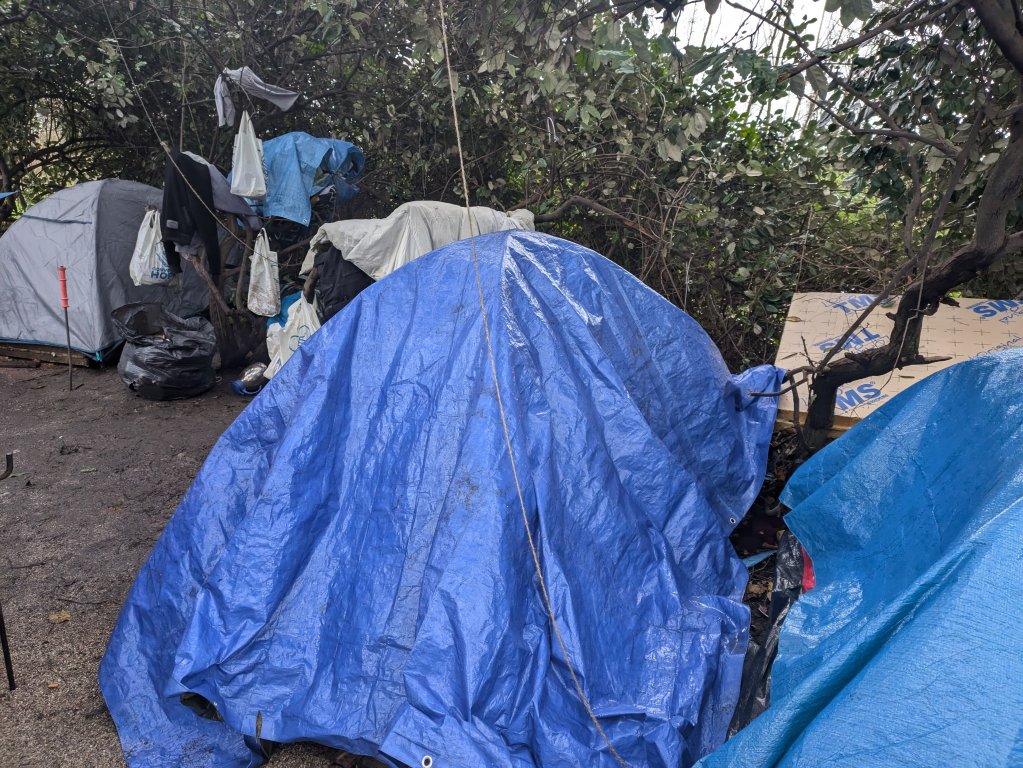
A 19-year-old man, Ibrahim, explains that most Sudanese migrants can’t afford to pay smugglers thousands of euros to make the journey by boat, and instead will try to reach the UK by truck or by car. They will often make this journey alone, clinging to the roof of the vehicle. Later, speaking to InfoMigrants, Feyrouz Lajili project coordinator from Medecins Sans Frontieres (MSF) explains they often treat young Sudanese men and boys for injuries obtained from moving vehicles.
When I ask what happens if they are caught he says, "sometimes they detain you for 24 hours and sometimes they just let you go. I’ve tried many times." He tells us that in the last six months, four or five people have managed to reach the UK via this mode of transport – very few, considering the number of Sudanese men and boys in Calais.
30-year-old Mubarak, a Sudanese migrant who has been in Calais for six months, says he prefers the UK over France for its perceived better opportunities. "I don’t like France, look how we are living here," he says.
Read AlsoMigrant women in Calais grapple with sexual violence
Survival in the camps
Life in Calais is marked by constant evictions, police raids, and the threat of losing their possessions. Camps are dismantled every 48 hours, forcing residents to relocate repeatedly.
In practice, this is a process of going through the motions. The migrants pack up their tents and anything left behind is seized by riot police, and occasionally migrants are arrested. Yet after police leave, the migrants return, rebuild the camp and arrange their belongings, and continue their lives until the process starts again two days later.
Some migrants have become so accustomed to this routine and describe it with a wry sense of humor. "On the days the police come, we pack our things, move away, and as soon as they leave, we come back," says Issam.
Selam*, an asylum seeker in his fifties from Ethiopia, says, "the police are doing their job they don’t hit us and they respect us, they just take our things and then we take them back."
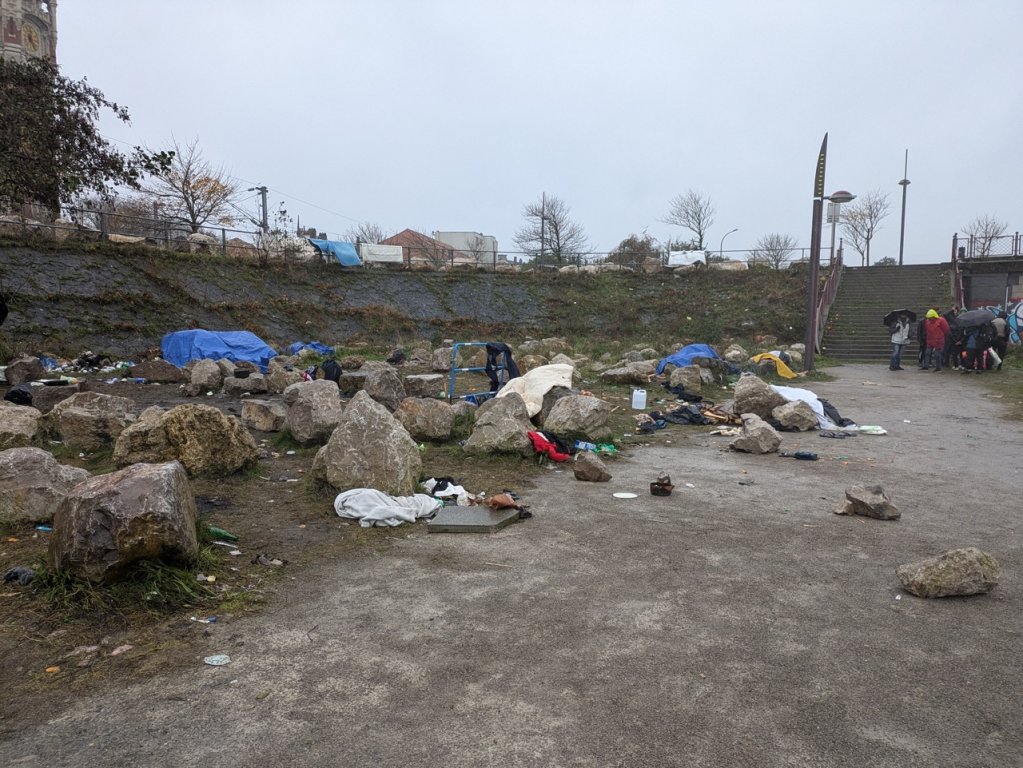
Organizations like La Vie Active (a French state-mandated organization) provide daily meals, NGOs such as Utopia 56 provide food and clothing, and MSF and the Red Cross provide basic medical support and charging stations. But resources are limited, and restrictions from French authorities can complicate their efforts.
Mohammad, a 19-year-old stateless Bidoon from Kuwait, has experienced this precarious existence firsthand. After living in Sweden as an unaccompanied minor, he left due to lack of support and opportunity once he turned 18. Now in Calais, Mohammad tells InfoMigrants "I want to go to the UK to get a better life and a better future for me. The first thing I will do is to learn the language, then we will see what will happen there. I’m just 19 years old, I have a future." Mohammad says that on social media, he sees that Kuwaitis are more accepted in the UK.
Read AlsoJumping onto trucks in Calais, the last resort for migrants without money
The risks of Channel crossings
The English Channel crossing remains one of the most dangerous parts of the journey. Overloaded dinghies and treacherous waters claim more lives each year. Smugglers demand between 1,000-1,500 euros for a place on a boat and have responded to the growing militarization of the border by launching crossings from more distant locations like Le Havre, making the journeys longer and more deadly.
A spokesperson for Utopia 56 previously told InfoMigrants that the high number of interceptions has forced smugglers to adapt, often loading more people onto overcrowded boats, further increasing the risk of shipwrecks and deaths at sea.
Despite these dangers, the belief that the UK offers a last chance for a better future outweighs the risks for many. Muhammed from Iraq, who spent 10 years in a camp in Germany, only to have his asylum claim denied, summed up the desperation shared by many here: "I want to work. I want to start a new life. I waited 10 years in Germany and got nothing. I am scared, but what choice do I have?"
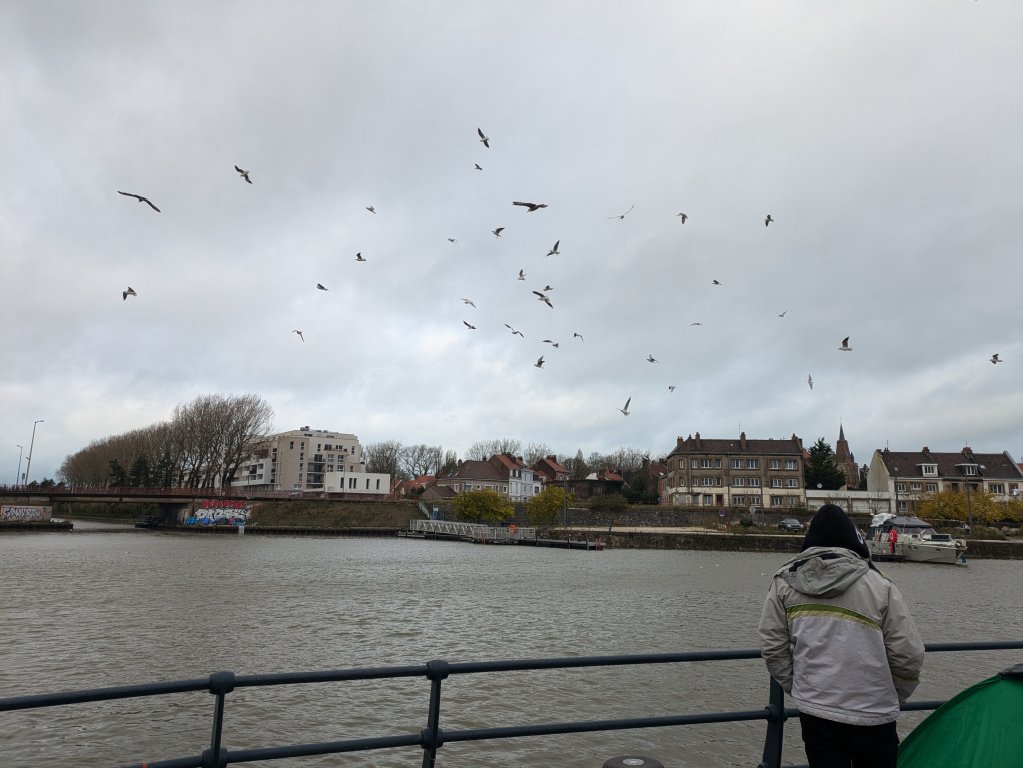
From conversations with migrants in Calais it is clear that they are well aware of the risks of the Channel crossing. For many, however, the UK represents a last resort to build a life. Many migrants in Calais see the UK not as an easy haven but as a land of opportunity where they can rebuild their lives, reunite with family, and contribute to society.
If you look beyond the cold and the poor conditions in the camps, the migrants in Calais are ultimately driven by hope.
*name changed
